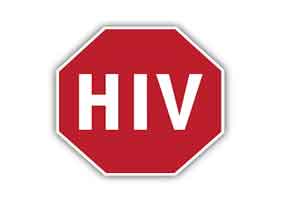- Home
- Editorial
- News
- Practice Guidelines
- Anesthesiology Guidelines
- Cancer Guidelines
- Cardiac Sciences Guidelines
- Critical Care Guidelines
- Dentistry Guidelines
- Dermatology Guidelines
- Diabetes and Endo Guidelines
- Diagnostics Guidelines
- ENT Guidelines
- Featured Practice Guidelines
- Gastroenterology Guidelines
- Geriatrics Guidelines
- Medicine Guidelines
- Nephrology Guidelines
- Neurosciences Guidelines
- Obs and Gynae Guidelines
- Ophthalmology Guidelines
- Orthopaedics Guidelines
- Paediatrics Guidelines
- Psychiatry Guidelines
- Pulmonology Guidelines
- Radiology Guidelines
- Surgery Guidelines
- Urology Guidelines
Single dose of antibodies after viral exposure can prevent HIV in newborns: Study

HIV-positive women typically take antiretroviral therapy drugs during pregnancy but mother-to-baby transmission sometimes still happens. Children born to HIV-positive mothers also are given antiretroviral therapy to further prevent infection. However, this drug cocktail can have many negative side effects, involves making special liquid formulations for newborns, and researchers worry about antiretroviral therapy's long-term consequences for development.
Researchers have found that a single dose of an antibody-based treatment can prevent HIV transmission from mother to baby, new nonhuman primate research suggests for the first time. The findings are being published in the journal Nature Communications.
When that single dose is given is key, however. The study found rhesus macaque newborns did not develop the monkey form of HIV, called SHIV, when they received a combination of two antibodies 30 hours after being exposed to the virus.
Delaying treatment until 48 hours, on the other hand, resulted in half of the baby macaques developing SHIV when they were given four smaller doses of the same antibody cocktail. In comparison, the study found macaques that received the current standard HIV treatment - antiretroviral drugs - remained SHIV-free when they started a three-week regimen of that therapy 48 hours after exposure.
"These promising findings could mean babies born to HIV-positive mothers can still beat HIV with less treatment," said the study's corresponding's author, Nancy Haigwood, Ph.D., a professor of pathobiology and immunology in the Oregon Health & Science University School of Medicine, as well as the director at the Oregon National Primate Research Center at OHSU.
This is the first time a single dose of broadly neutralizing antibodies given after viral exposure has been found to prevent SHIV infection in nonhuman primate newborns. Previous research by Haigwood, Ann Hessell, Ph.D., and others showed four doses of antibodies started 24 hours after exposure prevented SHIV infection, with all 10 of the baby primates in that study not having any SHIV virus for six months. Both studies used a combination of two antibodies called PGT121 and VRC07-523.
The new study also suggests a much shorter course of antiretroviral therapy given after virus exposure could prevent HIV transmission to newborns. Human babies born from HIV-positive mothers typically take the drug cocktail - a personalized regimen of multiple drugs taken daily - for about six weeks before being re-tested. If the tests are then positive, they likely need to take HIV drugs for the rest of their lives. But this study showed nonhuman primate newborns didn't have SHIV after undergoing antiretroviral therapy for just three weeks starting 48 hours after exposure.
Antibodies, however, aren't toxic and can be modified to last a long time in the body, which reduces treatment frequency. This has led researchers to explore their potential to replace or supplement antiretroviral therapy for newborns with HIV-positive mothers as well as for HIV-positive adults.
Next, Haigwood and colleagues plan to see if different antibodies, or a combination of antibodies and antiretroviral therapy, could be even more effective. They also want to determine if the antibodies they evaluate actually eliminate HIV, or only prevent it from replicating.
The research team has regularly shared their primate research findings with the scientific community, including those involved in the International Maternal Pediatric Adolescent AIDS Clinical Trials Network, which is currently leading two trials evaluating a single antibody to treat HIV-exposed newborns.
For more details click on the link: http://dx.

Disclaimer: This site is primarily intended for healthcare professionals. Any content/information on this website does not replace the advice of medical and/or health professionals and should not be construed as medical/diagnostic advice/endorsement or prescription. Use of this site is subject to our terms of use, privacy policy, advertisement policy. © 2020 Minerva Medical Treatment Pvt Ltd